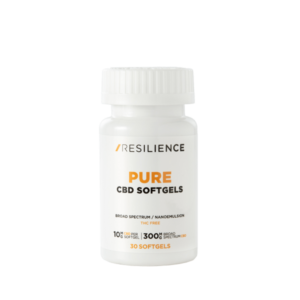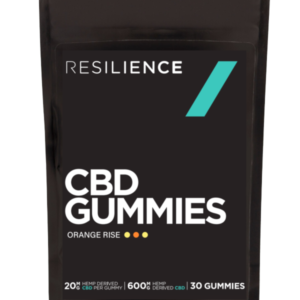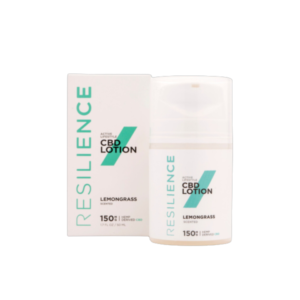
One day your dog begins scratching and you wonder what is going on. Not fleas, so what could it be?
Among other things, it is a sign that your dog’s endocannabinoid system (ECS) is out of whack. It is crucial to the health of all back-boned animals that this important part of the immune system remains in homeostasis – in balance.
CBD and Allergic Reactions
At about the age of three to six months, some dogs begin to develop allergies. A common allergic reaction in dogs often manifests in/on the skin. It is the job of the skin’s ECS to make sure that diverse cells reproduce properly and survive, and that they have effective immune responses.
It is a delicate balance and if it is disrupted skin conditions like eczema, psoriasis, hair growth disorders, and allergic dermatitis, among others, may occur. All of these lead to itching, inflammation, and pain.
According to research, the role played by the ECS is crucial to controlling the skin’s sensory experience (touch, pressure, dryness and itching). Cannabinoids like CBD subdue inflammation and provide strong pain relief in humans and animals when they activate CB1 and CB2 receptors in inflamed cells.
The addition of a CBD supplement to a dog’s daily routine aids the ECS, making it easier to deal with whatever allergen is creating havoc in the body. Allergens can cause wheezing, a runny nose, and itchy eyes. Dogs may scratch and/or exaggerate grooming, break out in a rash, chew their paws, or suffer skin inflammation.
Allergies
We don’t think of allergic diseases as chronic health issues, but for many dogs – and people – they are. Some allergens come in on the air we breathe, others in the food we eat, and the medications we take; or there may be skin to allergen contact.
Not all bodies react to the same allergens, but when the body identifies a substance as harmful, its immune system responds, and an allergic reaction sets in.
Something as harmless as pollen, dust and/or dander, mold or flea saliva, may cause a dog’s lymphoid system to produce lymphocites that in turn produce antibodies to fight the allergen. Sometimes, the body overreacts and then inflammation sets in.
We already know that although every body is the same, every body is different. Each back-boned creature has its own ECS system, and while antibodies are wrestling with an allergen attack, the ECS is also working to rid the body of inflammation and get it back in balance.
How the ECS Helps
If this were an equation, it would be allergies=inflammation. All physiological processes – from pain and inflammation to anxiety – are regulated by the ECS. There are receptors throughout the body that bind with made-on-demand cannabinoids to make the body stable and balanced.
As the body crusades against allergens and other irritants which are damaging cells, it releases cytokines like interferon and interleukin, proteins that regulate the response to inflammation. Some cannabinoids act by activating receptors that inhibit the release of cytokines, creating balance so that too many are not released, thereby decreasing inflammation.
Initially, it was thought that CB1 receptors were found only in the nervous system and CB2 receptors in immune cells, but according to a paper published by the NIH, a “functional ECS is present almost in all peripheral organ systems.” On humans and mice, immune reactions were observed on skin nerve fibers and cells.
That is why providing a dog with a plant-based (phyto)cannabinoid supplement like CBD, helps restore the body to its healthiest self. Replenishing the ECS with many of the over 100 phyto-cannabinoids found in hemp, including the most researched – CBD and THC – may stop a dog’s itch. Really? Well, yes.
Entourage Effect
In 2015, researchers found that a full-spectrum oil – one that contains a diversity of cannabinoids and terpenes extracted from a hemp plant high in CBD – was more effective than pure CBD in treating inflammation and related symptoms. Why? The ‘entourage effect’ allows the plant’s components, as a group, to work together to produce a greater impact, to be more effective.
Synergy – the idea that that the energy of the whole is greater than that of individual components is not a new concept. For thousands of years, healers – those who practice Ayurvedic and Traditional Chinese Medicine – have known about the entourage effect.
This is one reason that oils that contain a trace amount of THC (less than the legal limit of 0.3%), like Resilience CBD’s full spectrum CBD oil, are in demand. It is known that bodies become more and more sensitive to allergens over time.
THC may lengthen the time from initial sensitization to actual allergic reaction by suppressing the immune systems response to allergens. One study showed that in mice a topical application decreased “allergic-contact ear swelling” by limiting the recruitment of immune cells.
At the same time, CBD works against seasonal allergies by aiding in the regulation of white blood cells, the immune system’s ‘special forces.’ Research on other cannabinoids is just beginning, but chances are good that teamwork will be revealed.
The study, found in the Journal of the American Academy of Dermatologists, suggests that cannabinoids “may have anti-inflammatory properties useful for the treatment of both allergic contact dermatitis and atopic dermatitis.”
How Healthy Skin Happens
The skin is a barrier, a first protection – actually the largest organ protecting the body from damage in harmful environments. Made of many layers that not only waterproof, but also function as a neuronal network allowing the sensation of touch and pressure, temperature, and pain and itchiness as well. Skin is part of the immune machine and an endocrine system that releases, among other things, hormones. All layers are constantly working, communicating, establishing skin homeostasis – maintaining balance.
Dry Skin
In the case of dry skin, applying a cannabinoid supplement like CBD to the skin can stimulate the CB2 receptors found in the sebaceous glands located in the derma, the middle skin layer. In addition to stimulating the CB2 receptors, a CBD supplement can do just that, supplement the endocannabinoids that have been produced.
In one study, researchers “explored the effects of the major nonpsychotropic phytocannabinoid of Cannabis sativa, (-)-cannabidiol (CBD), on human sebaceous gland function and determined that CBD behaves as a highly effective sebostatic agent.”
In other words, helping the sebaceous glands work properly so that they release the correct amount of sebum, an oil that lubricates skin and hair, is a pathway to reducing pain, itching, sclerosis and dermatitis.
Atopic Dermatitis
For dogs, atopic dermatitis is the second most common skin condition. A roll in the grass, a curl-up in a dusty corner full of mites, can inflame and cause this chronic skin condition.
Also known as eczema, this condition may be caused by ‘leakiness’ of the skin barrier. The skin then becomes dry, easily irritated, and inflamed by elements in the environment. It can be triggered by food or a skin infection and is characterized by its red color and scaly appearance. It will also itch.
It will manifest in a milder form when it first begins, but will increase in intensity as time goes on, and possibly seasonally.
It is as difficult to rid a dog of atopic dermatitis, as many well know, as it is to prevent itching and scratching. Often, corticosteroids and/or antihistamines are prescribed. And antibiotics, too, if an infection is the cause.
Pharmaceutical drugs that suppress the immune system may temporarily lessen symptoms, but they do not treat the cause. In fact, in tamping down the immune system’s response, the dog may be open to other diseases it no longer has the ability to fight.
Contact Dermatitis
It is difficult to know whether contact dermatitis is caused by the body becoming sensitized to an allergic ‘trigger’ irritant or simply reacting to an irritant like salt on the road.
Whichever the cause, the effect will be a rash and/or bumps on the skin. There may be severe itching and even swelling. Most irritation will occur where the dog’s body contacts with the irritant: abdomen, groin, chin, neck and chest. And the tail. And between the toes.
Whether the irritant is plant or plastic, fertilizer or fungus, carpet deodorizer or concrete, cannabinoid studies once again show that CBD supplements can help to balance the ECS and keep a dog healthy.
In one study, mice who lack cannabinoid receptors CB1 and CB2 showed more allergic inflammation when skin came in contact with an irritant; while mice who have a high level of the endocannabinoid, anandamide, showed a reduced allergic skin response. “These results,” the study notes, “demonstrate a protective role of the endocannabinoid system in contact allergy in the skin and suggest a target for therapeutic intervention.”
That Hot Spot
Scratch an itch enough and, if you are a dog, hair will fall out. Then the skin will become red, then weepy. In more severe cases nerve endings will be exposed and infection will set in as the skin erodes. Bacteria thrives in wet, moist environments.
Not all allergic reactions lead to hot spots. Specific breeds, those with long hair and thick coats, are more prone to developing hot spots, especially during a spell of hot, humid weather.
The itch can be caused by any of the above mentioned factors, but the trauma of the hot spot is often self-inflicted, a dog’s response to pain and discomfort. Known as acute moist dermatitis, optimal treatment would address the cause, as well as the symptoms. If a dog is in discomfort, and has a possible infection, a veterinarian should be consulted.
Owners can deal with hot spots prophylactically by making sure that the dog is well groomed, treated for fleas, and kept away from known allergens and irritants as much as possible.
Some Other Things
Diet is important to maintaining healthy, vibrant skin. Beneficial fats and omega-3s found in flaxseed, fish or coconut oil can be a part of every meal. Good for the brain and for giving a luxurious coat, as well as for aiding skin, these fats work internally to promote good health.
Don’t be fooled by hypoallergenic foods. Check the oils found in these foods to make sure that there are beneficial oils. Look, too, for starches, additives and fillers like powdered cellulose: all of these may exacerbate allergic reactions rather than calm them.
The End of the Itch
Whether your dog’s itching is caused by a reaction to allergens, or is caused by mites or fleas, other irritants, or even by a too dry environment, a CBD supplement, with its anti-inflammatory properties, may be crucial to restoring skin vitality.
Also, with so many CBD offerings now on the market, making sure that the CBD product that you choose is free of impurities is imperative. Resilience CBD is committed to a consistently pure CBD oil supplement that comes from hemp organically grown from non-GMO cultivars.
Resilience CBD is triple lab tested, and test results are available at resiliencecbd.com.
 Written by: Michael Tatz | Linkedin
Written by: Michael Tatz | Linkedin
Michael Tatz is the Co-Founder of Resilience CBD, and a passionate leader in the health & fitness world helping others rise to and crush their wildest goals. A former Division 1 college wrestler, Army Officer, and investment manager at Goldman Sachs, he has pushed his body and mind to the limits on the mats, dressed in camo, and in the boardroom.
Today, he spends his time leading Resilience CBD to develop the absolute best recovery products for athletes everywhere. Resilience was founded after CBD personally impacted Michael’s life, and the brand was built to partner with everyday athletes in pursuit of conquering their most difficult challenges, rebounding after their toughest performances, and rising to their goals that once seemed impossible.
References
www.aaha.org/public_documents/trends/cannabis_research.pdf
www.ncbi.nlm.nih.gov/pmc/articles/PMC2757311/
www.ncbi.nlm.nih.gov/pubmed/25061872
www.ncbi.nlm.nih.gov/pubmed/17556587
www.ncbi.nlm.nih.gov/pubmed/17157480
www.petmd.com/dog/conditions/skin/c_dg_atopic_dermatitis
www.aaaai.org/conditions-and-treatments/allergies/skin-allergy






